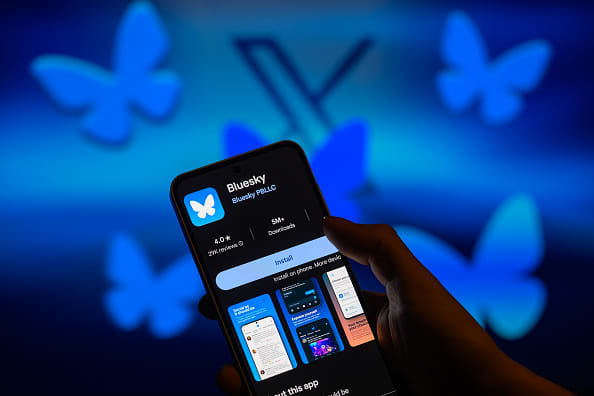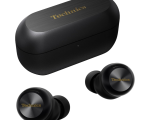Twitter CEO Jack Dorsey testifies during a remote video hearing held by subcommittees of the U.S. House of Representatives Energy and Commerce Committee on “Social Media’s Role in Promoting Extremism and Misinformation” in Washington, March 25, 2021.
CNBC
Block CEO Jack Dorsey spent the weekend building Bitchat, a new decentralized, peer-to-peer messaging app that works entirely over Bluetooth mesh networks, with no internet, central servers, phone numbers or emails required.
The Twitter co-founder announced Sunday that the beta version is live on TestFlight, with a full white paper available on GitHub.
In a post on X Sunday, Dorsey called it a personal experiment in “bluetooth mesh networks, relays and store and forward models, message encryption models, and a few other things.”
Bitchat enables ephemeral, encrypted communication between nearby devices. As users move through physical space, their phones form local Bluetooth clusters and pass messages from device to device, allowing them to reach peers beyond standard range — even without Wi-Fi or cell service.
Certain “bridge” devices connect overlapping clusters, expanding the mesh across greater distances. Messages are stored only on device, disappear by default and never touch centralized infrastructure — echoing Dorsey’s long-running push for privacy-preserving, censorship-resistant communication.
The launch builds on his support of Damus and Bluesky and reflects a broader campaign to decentralize everything from social media to payments.
Like the Bluetooth-based apps used during Hong Kong’s 2019 protests, Bitchat is designed to keep working even when the internet is blocked, offering a censorship-resistant way to stay connected during outages, shutdowns or surveillance.
The app also supports optional group chats, or “rooms,” which can be named with hashtags and protected by passwords. It includes store and forward functionality to deliver messages to users who are temporarily offline.
A future update will add WiFi Direct to increase speed and range, pushing Dorsey’s vision for off-grid, user-owned communication even further.
Unlike mainstream messaging platforms such as Meta‘s WhatsApp and Messenger, which are owned and built by big tech companies and rely on personal data, Bitchat operates entirely peer-to-peer with no accounts, no identifiers and no data collection.









